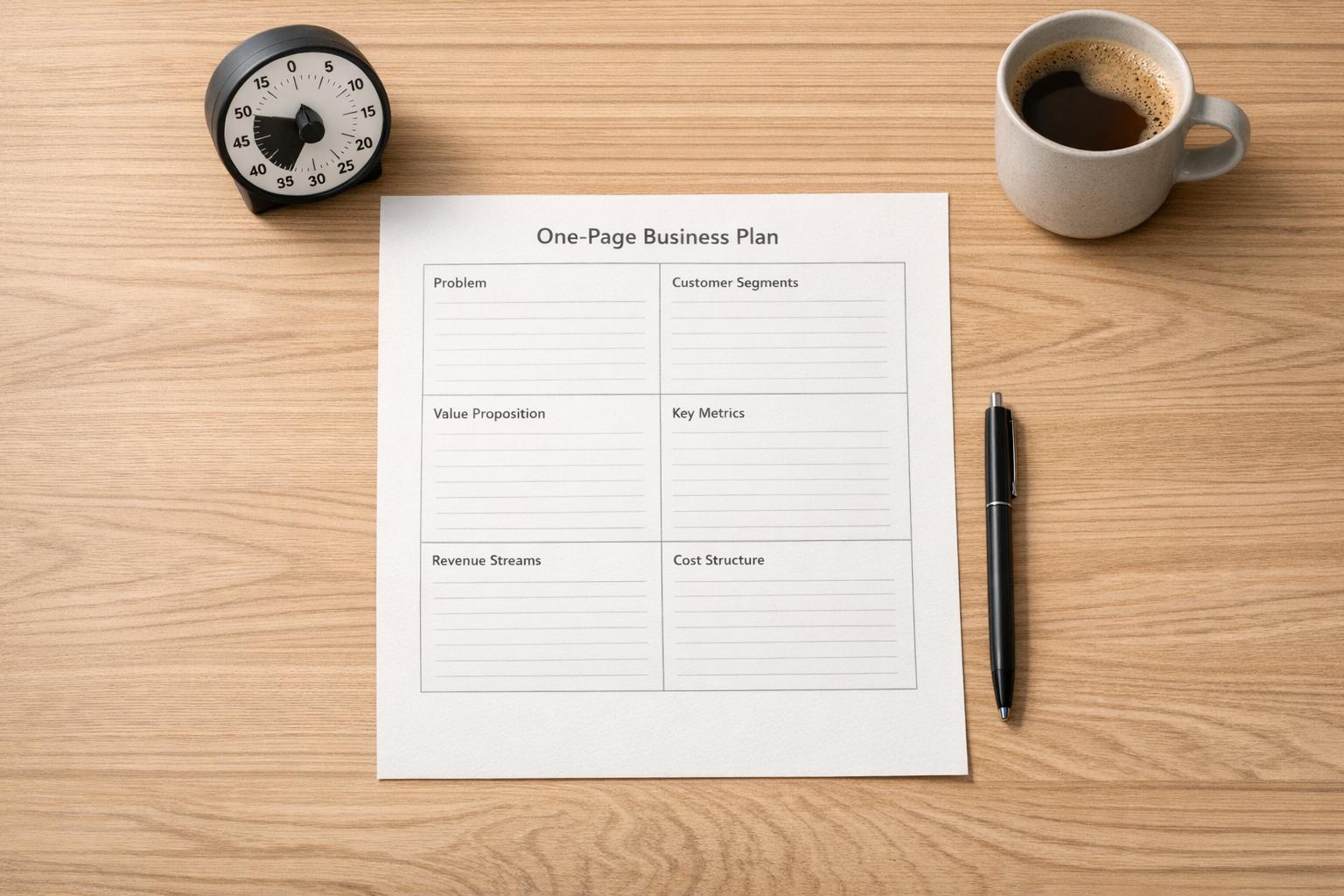
Starting a mobile notary business is a flexible way to earn income by offering on-site notarization services. Here’s what you need to know:
- Legal Setup: Obtain your notary commission, meet state requirements (e.g., training, exams, and surety bonds), and choose a business structure like an LLC for liability protection.
- Equipment: Essential tools include a notary stamp, journal, portable printer, mobile office setup, and secure document storage.
- Pricing: Follow state fee limits for notarization, but charge travel and after-hours fees to increase earnings. Bundle services for convenience.
- Scheduling: Use online tools for booking, reminders, and route planning to maximize efficiency and reduce downtime.
- Productivity Tips: Group similar tasks, prep your supplies, and communicate clearly with clients to stay organized.
This business thrives on professionalism, proper planning, and understanding your local market needs. With the right setup, you can grow a profitable mobile notary business.
Legal Requirements and Business Setup
State Notary Requirements You Must Meet
Before launching your mobile notary business, you’ll first need to become a commissioned notary public in your state. The exact requirements can vary widely depending on where you live - there’s no universal checklist.
Generally, most states require you to be at least 18 years old, a legal resident, and proficient in English. A criminal background check is often part of the process, and certain felony or fraud convictions may disqualify you.
The steps to obtain your commission also depend on your state. For example, California requires you to complete a 6-hour training course and pass a state-administered exam. Texas has similar requirements, mandating state-approved training and testing. Louisiana is known for having one of the toughest state-specific notary exams, while New York requires passing the Notary Public Exam. On the other hand, some states have a more straightforward process, such as an online course or a simple application without extensive testing.
In many states, you’ll also need to purchase a surety bond, which protects your clients in case of notary errors or misconduct. The required bond amount varies depending on the state.
Once your application is approved, you’ll receive an official notary commission certificate, granting you the authority to perform notarial acts. Keep in mind that notary commissions typically need to be renewed every 4 to 10 years, depending on state regulations.
To ensure you meet all the legal requirements, check your state’s notary public division or Secretary of State website. The National Notary Association is another helpful resource for understanding state-specific guidelines.
With your notary commission in hand, the next step is setting up your business structure.
How to Set Up Your Business Entity
After securing your notary commission, it’s time to decide on a business structure that aligns with your operational and financial goals.
A sole proprietorship is the easiest option to get started. It requires minimal paperwork, allowing you to begin operating quickly. However, this structure doesn’t protect your personal assets. If your business faces a lawsuit, your personal property - like your home or savings - could be at risk.
Many mobile notary professionals opt for an LLC (Limited Liability Company). This structure provides a layer of protection, keeping your personal assets separate from business liabilities, while still being relatively simple to manage. Given the nature of a mobile notary business, which often involves traveling and handling sensitive documents, an LLC is a practical choice.
Once you’ve chosen your structure, register your business name (or DBA, if applicable) and obtain an EIN (Employer Identification Number) for tax purposes. Depending on your state and business setup, you may also need to register for state income tax, sales tax, or other local business taxes.
To keep your finances organized, open a separate business bank account and consider getting a business credit card. This separation simplifies tax filing, protects your personal assets, and adds a level of professionalism to your business.
Lastly, set up an accounting system to track your income and expenses. Whether you use a simple spreadsheet or accounting software, proper record-keeping is essential for monitoring your business performance and streamlining tax preparation.
With your business entity established, you’ll be ready to assess the demand for your services.
Validating Your Business Idea
Before diving into the market, it’s important to confirm there’s demand for mobile notary services in your area. Start by researching local population density, income levels, and industries that frequently require notarizations. Areas with active real estate markets, law offices, healthcare providers, or senior living facilities often have a steady need for notary services.
Use this research to identify potential opportunities. For example, check how many mobile notaries are already operating in your area, what services they offer, and their pricing. Look for gaps - maybe there’s a demand for evening or weekend appointments, or perhaps certain neighborhoods are underserved.
Take it a step further by reaching out to potential clients like real estate agents, attorneys, mortgage brokers, or senior care facilities. Ask about their current challenges with notarizations and what they’d value most in a mobile notary service. These conversations can give you valuable insights into how to position your business.
This validation process will help you refine your pricing, services, and availability - key factors in building a successful mobile notary business.
How to Start a Mobile Notary Business 7 Steps to Start Your Notary Business
Required Tools and Equipment for Mobile Notaries
Once your business model is set, the next step is gathering the tools you need to provide professional mobile notary services. A successful mobile notary business relies on a mix of traditional tools and modern technology. Since you'll be meeting clients in various locations - like coffee shops or hospital rooms - your equipment must be portable, dependable, and professional.
Basic Equipment for Notary Services
At the heart of your setup is your notary stamp and seal. Most states require an official seal that includes your name, commission number, commission state, and expiration date. Make sure your stamp produces clear impressions and always carry a backup in case of damage or loss.
A bound notary journal is another must-have. In many states, it's mandatory, and even where it's not, it’s highly recommended. This journal serves as a permanent record of your work, protecting both you and your clients. Opt for one with pre-numbered pages and space for thumbprints if needed. Choose a compact, easy-to-read design.
For appointments involving multiple documents, mobile printing and scanning capabilities are essential. A portable printer and a smartphone scanning app can help you manage documents on-site, whether they’re letter or legal size.
Your mobile office setup should include the tech you need to stay connected and efficient. A laptop or tablet, smartphone, and mobile hotspot will ensure you can handle appointments seamlessly.
Since you’ll be on the move, reliable transportation is key. A well-maintained vehicle stocked with essential supplies - like a portable signing surface - will keep you prepared. Also, carry extra forms and basic office supplies, such as pens, paper clips, and folders, to stay organized.
Software for Scheduling and Business Management
Technology can simplify your operations and save time. Here are some tools worth considering:
- Scheduling software: Apps that let clients book appointments directly can cut down on back-and-forth communication. Look for features like automatic confirmations and reminders to minimize no-shows.
- Document management systems: Cloud-based platforms allow you to organize client files, track appointments, and access documents securely from anywhere. Choose systems with encryption to protect sensitive information.
- Invoicing and payment tools: Mobile payment processors enable you to accept credit cards and digital payments on-site, which many clients prefer. These tools often handle invoicing and payment tracking automatically.
- GPS and mapping apps: Efficient route planning is crucial, especially if you have multiple appointments in different areas. Real-time traffic updates can help you stay on schedule.
- Communication tools: A dedicated business phone number, along with professional email and text messaging options, ensures you stay connected with clients throughout the process.
These digital tools help streamline your workflow, making it easier to manage appointments and stay organized.
Professional Standards and Document Security
Maintaining high standards of professionalism and security is essential for building trust with your clients.
- Document security: Protect sensitive documents from theft or fraud. Avoid leaving paperwork unattended in your vehicle, use encrypted cloud storage for digital files, and dispose of physical documents securely when they’re no longer needed.
- Professional appearance: First impressions matter. Dress appropriately, arrive on time, and keep your workspace tidy to project credibility and professionalism.
- Privacy compliance: If you handle healthcare documents, familiarize yourself with HIPAA guidelines. Similarly, follow proper protocols when dealing with financial information in real estate transactions. Protecting client confidentiality is non-negotiable.
- Backup systems: Be prepared for unexpected issues. Carry spare batteries, extra pens, and paper copies of important forms. Have alternative ways to contact clients if your primary communication tools fail.
Finally, keep your mobile office well-organized. Use labeled folders, designate compartments for supplies, and maintain an inventory checklist to ensure you’re always ready, even during busy times. A systematic approach will save you time and keep your business running smoothly.
sbb-itb-08dd11e
Pricing Your Services and Financial Planning
Setting the right prices for your mobile notary services is a balancing act. You’ll need to navigate legal guidelines, keep an eye on the competition, and ensure your pricing supports your business goals. Since state laws set limits on notarization fees, your pricing strategy has to work within those boundaries.
How to Set Legal and Competitive Prices
Every state establishes a maximum fee that notaries can charge for basic services. Before you start, make sure you’re familiar with the specific regulations in your state. While you can’t exceed these limits, you do have the option to charge less if it makes sense for your business.
In addition to the notarization fee, you can bring in extra income through travel charges and other services. Travel fees, unlike notarization fees, aren’t regulated. This gives you room to factor in variables like distance, time, and urgency. For example, you could offer a flat travel fee for clients within a certain radius and charge a per-mile fee for longer trips. Bundling services is another way to add value for your clients while boosting your revenue. Instead of listing separate charges for travel, notarization, and printing, consider creating all-inclusive packages for common transactions.
For after-hours, weekend, or emergency services, premium pricing is worth considering. Charging 50–100% more for these situations not only compensates you for the inconvenience but also helps maintain a healthy work-life balance.
Calculating Costs and Projecting Income
Understanding your costs is crucial for setting prices that are both competitive and profitable. Start by calculating your initial expenses, such as securing your notary commission, obtaining a business license, purchasing insurance, and investing in essential equipment and marketing. These costs will vary depending on where you’re located.
Next, account for your ongoing monthly expenses. These likely include vehicle costs (like gas, maintenance, and insurance), phone and internet bills, continuing education, supplies, and software subscriptions. Since travel can be a big part of your business, keep detailed mileage records for tax purposes. The IRS standard mileage rate (e.g., $0.655 per mile in 2023) can help you estimate travel-related costs.
To project your income, think about how many appointments you can realistically handle in a week. Multiply that by your average fee to estimate your gross revenue. Then subtract your monthly expenses to calculate your net profit. To find your breakeven point, divide your fixed monthly costs by the average profit per appointment. This will show you how many appointments you need to cover your expenses.
Keep an eye on metrics like total revenue, average transaction value, cost per appointment, and profit margins. Regularly reviewing these numbers will help you adjust your pricing strategy and identify opportunities to expand your services.
Using AI Tools for Pricing and Financial Planning
AI tools can take the guesswork out of pricing and financial planning. Platforms like IdeaFloat offer features that can help you fine-tune your approach:
- Advanced Pricing Research: This tool examines local market trends and applies proven pricing strategies to help you maximize your earnings.
- Financial Model Tool: Get a real-time overview of your business finances, including revenue, expenses, and profit margins.
- Financial Projections & Breakeven Analysis: Generate detailed monthly forecasts to visualize different scenarios and determine when your business will become profitable.
- Cost Analysis: Estimate your startup and ongoing expenses by factoring in travel costs, equipment wear and tear, and seasonal demand changes.
Scheduling and Productivity Tips
Once you've set up your tech and streamlined your operations, the next step is nailing down effective scheduling. Smart scheduling doesn’t just keep your calendar organized - it boosts profitability by increasing client appointments and cutting down on wasted time. Combine that with productivity strategies, and you’ll serve more clients while reducing stress and travel expenses.
Setting Up Appointment Scheduling Systems
Online booking tools are a game-changer. They remove the hassle of back-and-forth phone calls, letting clients check your availability and book appointments - even when you’re busy. To make your system work for you, block out travel time between appointments and set minimum notice requirements for bookings.
Customize your system to gather key details like service type, number of signers, location, and any special requirements. This way, you’re never caught off guard and can come fully prepared with the right materials.
Route planning is another must. Group appointments by location and use navigation tools to find the quickest routes. This approach not only saves time but also cuts down on travel costs.
Automate confirmations and reminders - say, 24 hours and 2 hours before each appointment. These reduce no-shows and ensure clients know what to bring. Include your contact info and clear instructions about required documents to avoid any last-minute surprises.
Once your booking system is running smoothly, it’s time to tackle your daily workflow.
How to Maximize Your Daily Productivity
Efficient scheduling is only part of the equation. To truly optimize your day, focus on strategies that make your workflow seamless.
- Group similar tasks: If you have multiple real estate closings or loan signings in one day, schedule them back-to-back. Sticking to one type of transaction keeps you in the zone, reduces setup time, and minimizes mistakes.
- Plan your travel smartly: Start by keeping appointments within a 15–20-mile radius. As your client base grows, you can expand your range or charge higher fees for longer trips. Be mindful of traffic patterns - avoid rush hours unless you’re pricing accordingly.
- Prepare your mobile office: Organize your supplies the night before. Essentials like extra pens, paper, and a portable phone charger can save you 5–10 minutes per appointment, which adds up quickly over a busy day.
- Communicate proactively: A quick call or text 30 minutes before arriving ensures clients are ready and have all necessary documents. This simple habit reduces delays and leaves a professional impression.
- Set boundaries for your availability: While evenings and weekends can be lucrative, overworking yourself leads to burnout. Many mobile notaries find success by working Tuesday through Saturday and reserving Sundays and Mondays for admin tasks or personal time.
Best Scheduling and Productivity Tools
The right tools can make or break your workflow. Here’s a look at some options to suit different needs and budgets:
| Tool | Monthly Cost | Key Features | Best For |
|---|---|---|---|
| Calendly | $8-12 | Online booking, automated reminders | Solo notaries needing a simple setup |
| Acuity Scheduling | $14-45 | Advanced booking rules, intake forms | Businesses looking for customization |
| Square Appointments | Free-$50 | Integrated payments, customer database | All-in-one solution seekers |
| Google Calendar | Free | Basic scheduling, mobile access | Budget-friendly startups |
| Microsoft Bookings | $6-22 | Team scheduling, Office 365 integration | Notaries using Microsoft tools |
If you’re juggling 10+ appointments daily, route optimization apps can save you hours on the road.
As your business grows, document management becomes essential. Tools like Dropbox or Google Drive provide secure cloud storage for signed documents. Many notaries organize folders by date or client name to stay on top of paperwork. Use Adobe Scan to turn your phone into a portable scanner for quick document uploads.
For payment processing, tools like Square (2.9% per transaction) or PayPal offer easy invoicing and payment collection. Some scheduling tools even include payment features, so you can handle everything in one place.
Start with the basics - a free Google Calendar and a simple reminder system are great for getting started. As your client list grows, invest in tools that save time and automate repetitive tasks, so you can focus on what matters most: serving your clients.
Key Takeaways for Starting Your Mobile Notary Business
Starting a mobile notary business requires a focus on legal compliance, the right tools, competitive pricing, and efficient scheduling to set yourself up for success.
Start with legal compliance. Make sure you meet your state's specific requirements. This usually involves completing necessary training, passing an exam, and securing a surety bond. Don’t forget to register your business - many opt for an LLC to protect personal assets.
Invest in the right tools. Equip yourself with essentials like a reliable notary stamp, a mobile printer, and secure storage for sensitive documents. A well-prepared mobile office not only boosts efficiency but also helps you establish a professional image.
Develop a smart pricing strategy. Check your state’s fee guidelines and research local rates to ensure your pricing is competitive. Remember to account for travel costs and operational expenses when setting your fees. Offering bundled services can also help maximize your earnings. Tools like IdeaFloat's Advanced Pricing Research can provide insights into competitor rates, helping you fine-tune your pricing as your business grows.
Optimize your schedule for better earnings. Use online booking systems and route planning tools to streamline your appointments and minimize downtime. Start with a manageable service area and group similar tasks to make the most of your time. Automated reminders and clear communication with clients can reduce no-shows and ensure everyone is prepared for their appointments.
FAQs
How can I determine if there’s enough demand for mobile notary services in my area?
To get started, dive into your local market to understand the demand for mobile notary services. Explore the most common documents people need notarized in your area - things like real estate contracts, legal paperwork, or even loan documents. This will give you a sense of where your services might fit in.
Next, take a close look at your competition. How many notaries are already operating nearby? What services do they provide, and are there any gaps you can fill? Knowing what’s already out there can help you carve out your niche.
Another way to gauge interest is by connecting directly with your community. You can conduct surveys, join local networking groups, or attend events to meet potential clients face-to-face. Don’t overlook online spaces either - social media groups or neighborhood forums can be goldmines for spotting people looking for notary services. By paying attention to these insights, you’ll be better equipped to shape your business around what your community truly needs.
How can I make sure my mobile notary business follows state laws and regulations?
To keep your mobile notary business running smoothly and within the bounds of state laws, start by ensuring you meet your state’s eligibility criteria. These typically include requirements like age, residency, and passing a background check. In some cases, you might also need to complete a state-approved notary education course and successfully pass an exam.
Once you’ve met these prerequisites, the next step is to submit your notary application, pay any applicable fees, and, if required by your state, secure a notary bond. Be sure your notary stamp complies with state standards - most states require it to be photographically reproducible. Also, remember to sign your name exactly as it appears on your notary commission to avoid any issues.
Staying informed about your state’s notary laws is equally important. Regulations can differ from state to state and may change over time. Make it a habit to review your state’s notary handbook or consult official resources regularly to ensure your business remains compliant.
What should I look for in scheduling and productivity tools for my mobile notary business?
When selecting scheduling and productivity tools for your mobile notary business, focus on tools that are easy to use, dependable, and efficient. These tools should make it simple to handle appointments, send reminders, and keep track of invoices without hassle. Features like calendar syncing, automated notifications, and mobile-friendly access can help you stay on top of your schedule and avoid missed appointments.
Look for apps that include invoicing and payment tracking capabilities - these can save you valuable time and help keep your business organized. Make sure the tools you choose align with your budget and have the flexibility to grow alongside your business.
Related Blog Posts
Get the newest tips and tricks of starting your business!


